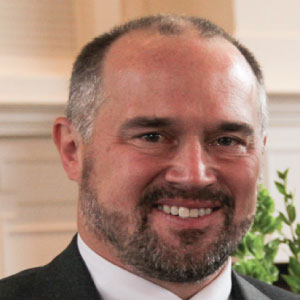
“The Poetry of Faith”
by the Reverend Doctor Peter W. Allen
Hingham Congregational Church, United Church of Christ
Hingham, Massachusetts
January 22, 2017
Psalm 27:1, 4-9
And did those feet in ancient time,
Walk upon Englands[8] mountains green:
And was the holy Lamb of God,
On Englands pleasant pastures seen!
And did the Countenance Divine,
Shine forth upon our clouded hills?
And was Jerusalem builded here,
Among these dark Satanic Mills?
Bring me my Bow of burning gold;
Bring me my Arrows of desire:
Bring me my Spear: O clouds unfold!
Bring me my Chariot of fire!
I will not cease from Mental Fight,
Nor shall my Sword sleep in my hand:
Till we have built Jerusalem,
In Englands green & pleasant Land.
William Blake, who wrote that piece in the early 19th century, was not the first person to use poetry to communicate spiritual ideas. Ahead of his time, he produced and vast body of work expressing his hopes for humankind’s connection with God.
Not all spiritual poetry is as explicitly religious as Blake’s. In the 1850’s, Walt Whitman published Leaves of Grass, a work that celebrates the body as much as it does the mind and the soul. One of my favorite passages reads:
What do you think has become of the young and old men?
And what do you think has become of the women and children?
They are alive and well somewhere;
The smallest sprout shows that there is really no death,
And if ever there was, it led forward life, and does not wait at the end to arrest it,
And ceased the moment life appeared.
All goes onward and outward… and nothing collapses,
And to die is different from what anyone supposed, and luckier.
One hundred years later, Allen Ginsburg turned the literary world on its head with his poem, Howl. Much of it’s not appropriate for church, so I’ll just read part of the last section:
… Holy! Holy! Holy! Holy! Holy!
The world is holy! The soul is holy! The skin is holy! The nose is holy! …
Everything is holy! everybody’s holy! everywhere is holy! everyday is in eternity! Everyman’s an angel!
The bum’s as holy as the seraphim! the madman is holy as you my soul are holy!
The typewriter is holy the poem is holy the voice is holy the hearers are holy the ecstasy is holy! …
Holy the groaning saxophone! Holy the bop apocalypse! Holy the jazzbands… hipsters… peace pipes & drums!
Holy the solitudes of skyscrapers and pavements! Holy the cafeterias filled with the millions! Holy the mysterious rivers of tears under the streets!
Holy the lone juggernaut! Holy the vast lamb of the middleclass! Holy the crazy shepherds of rebellion! …
Holy forgiveness! mercy! charity! faith! Holy! Ours! bodies! suffering! magnanimity!
Holy the supernatural extra brilliant intelligent kindness of the soul!
There is something about poetry that is perfect for expressing spiritual impulses. The reason poetry exists is because many ideas and feelings cannot be expressed in straight-ahead prose. Poetry allows us to go deeper, to communicate that which defies plain language.
The same is true of religious ideas, whether we’re talking about the Bible or a prayer or a sermon or a question or a thought that is deep within our hearts. Math, science, and linear description – as important as they are to understanding reality, don’t always cut it.
Those who wrote the psalms, like the one we read this morning, decided to express their feelings in verse. A law or a saying or a parable or the plain recitation of history wouldn’t have expressed the same level of passion or hope that the psalm’s poetry conveys.
The challenge of poetry is that we can’t always discern the meaning, but that’s actually OK. Because of its mysterious nature, poetry invites us in and engages our imaginations. It challenges us to be patient, to take our time, and to stay with the words until they begin to communicate something… a faint clue… a hint… a gentle breath of truth and of beauty.
Amen
